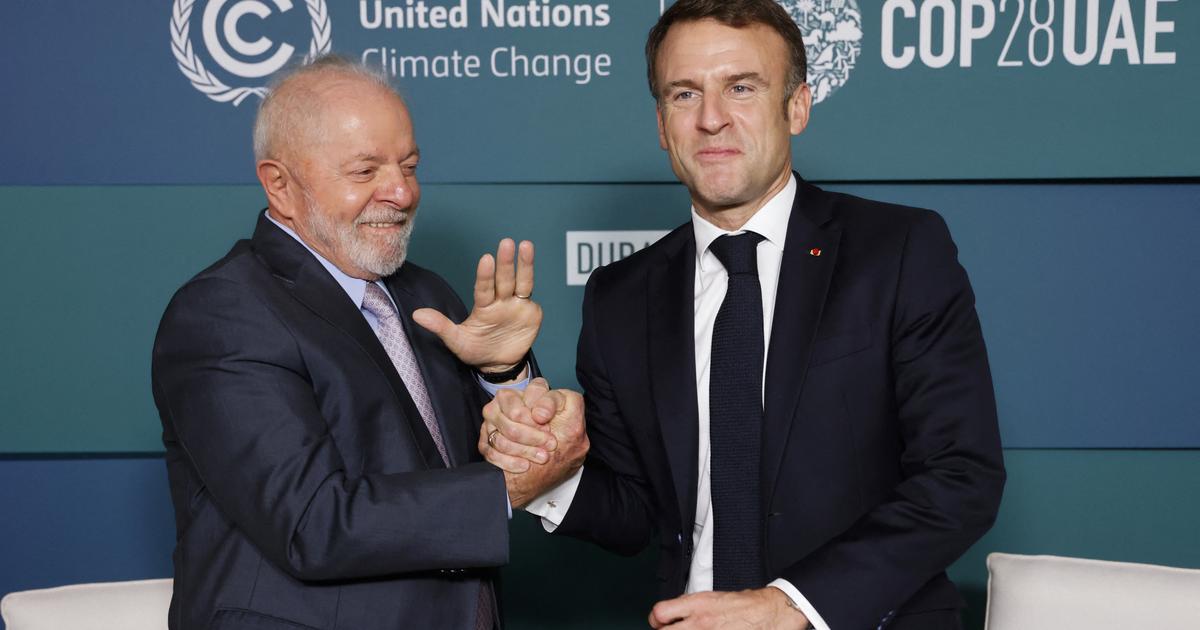The monument of the dictator is so colossal, that it is already half an hour's drive before the memorial on the horizon. A concrete cross, 155 meters high and 44 meters wide, rises above the basin in the Sierra de Guadarrama, northwest of Madrid. Below: a huge underground cathedral.
Thousands of forced laborers, often political prisoners, have carved them into the rock under inhumane conditions. In the basilica, in front of the main altar, has rested for 43 years the man who created his monument here during his lifetime: Francisco Franco.
The Valle de los Caídos, Valley of the Fallen, has become a place of pilgrimage. Until today supporters of the "Generalísimo" come to the tomb, decorate it with flowers, pray. In the basilica, the monks of the Benedictine monastery belonging to the complex hold masses. Even getting married here.
The Franco fans pay homage to a mass murderer. From 1939 to 1975, the dictator ruled Spain brutally. He had hundreds of thousands of opponents tortured, imprisoned in concentration camps and / or killed. When he died, with 81 in the hospital bed, he was buried in the Valle de los Caídos. Since then he has been here, as well as the founder of the fascist party Falange. But not for much longer.
Juan Medina / REUTERS
Flowers on Franco's resting place
Franco's remains are to be removed from the Valle de los Caídos - as soon as possible. That's what the new prime minister wants. "Spain can no longer afford symbols that split the Spaniards," says Pedro Sánchez. In other former fascist countries like Germany or Italy, a mausoleum for an ex-dictator is "unthinkable".
Reburial would be a milestone in the work-up
This Friday, socialist Sánchez initiated the exhumation of Franco. His cabinet passed a decree that allows the bones to be excavated. "The legal basis is created, theoretically, the workers could start tomorrow with the work," says historian and Spain expert Walther Bernecker. In September, the parliament will then vote.
Franco's descendants, who have so far blocked the exhumation, can barely prevent them from court. The government wants to hand over the remains to them. It would be a milestone in the sluggish processing of the dictatorship.
"The exhumation is long overdue," says Bernecker. "Franco is being conserved at the expense of the state, even though he has murdered hundreds of thousands of people." Moreover, Spain's current laws forbid glorification of Francoism. "And the Valle de los Caídos was once dedicated to the so-called 'Francoist heroes'."
AFP
Undated recording from the Spanish Civil War
When exactly the "Generalísimo" should be exhumed, the government does not want to betray. It is facing massive resistance to the planned eviction. As early as mid-July, dozens of young and old die-hards gathered in the Valle de los Caídos, chanting "Franco, Franco!", Showing the Fascist salute. And the prior of the Benedictine monastery explains that the planned reburial is merely "revenge for the past".
Franco divides the country until today
In Parliament, the Conservative People's Party (PP) makes mood against the Grabräumer. More than 40 years after Franco's death, an urgent procedure is unnecessary, says Pablo Casado, the new leader of the party that ruled Spain in the spring. The government only uses a decree because it has no majority in parliament. In fact, Sánchez's socialists have only a good quarter of the mandates. However, since the left Podemos, Catalan and Basque nationalists support the reburial, they have a good chance of getting the law through.
AFP
Spanish Prime Minister Pedro Sánchez
Sánchez "ruptured healed wounds again," says opposition chief Casado. Whether the wounds have ever healed, is questionable. For a long time, members of the Spanish Civil War dead, who are resting elsewhere in the valley, are asking for Franco's bones to be moved. They also want a commission of experts set up by the state to deal with the dictatorship. And the majority of the parliament also voted in favor in 2017. But then Prime Minister Mariano Rajoy ignored the vote: it was not binding on him. The PP emerged from a party founded by a former Franco minister.
"No wounds are being torn open here," says Bernecker. "In Spain, wounds were kept open for years by not doing anything."
Sánchez's Socialists want to do it differently. However, they do not have a clear majority of citizens behind them. Although in two national surveys for the newspaper "El Mundo" and the web portal "El Español", the majority of participants spoke out for Franco's exhumation. However, only 40 or 46 percent of respondents supported the reburial.
Franco ruled this country for three and a half decades. He splits it to this day.



/cloudfront-eu-central-1.images.arcpublishing.com/prisa/ZRLOH32ENCW263BU2E35WQOSNA.jpg)
/cloudfront-eu-central-1.images.arcpublishing.com/prisa/AC36GYLAVNDB5ARM4NIPPZUEJQ.jpg)


/cloudfront-eu-central-1.images.arcpublishing.com/prisa/UNETYPZTLZGJZGXEZA2R4WGRVY.jpg)

/cloudfront-eu-central-1.images.arcpublishing.com/prisa/44TUAZQK6FIY3JJJKSZAYFTCG4.jpg)